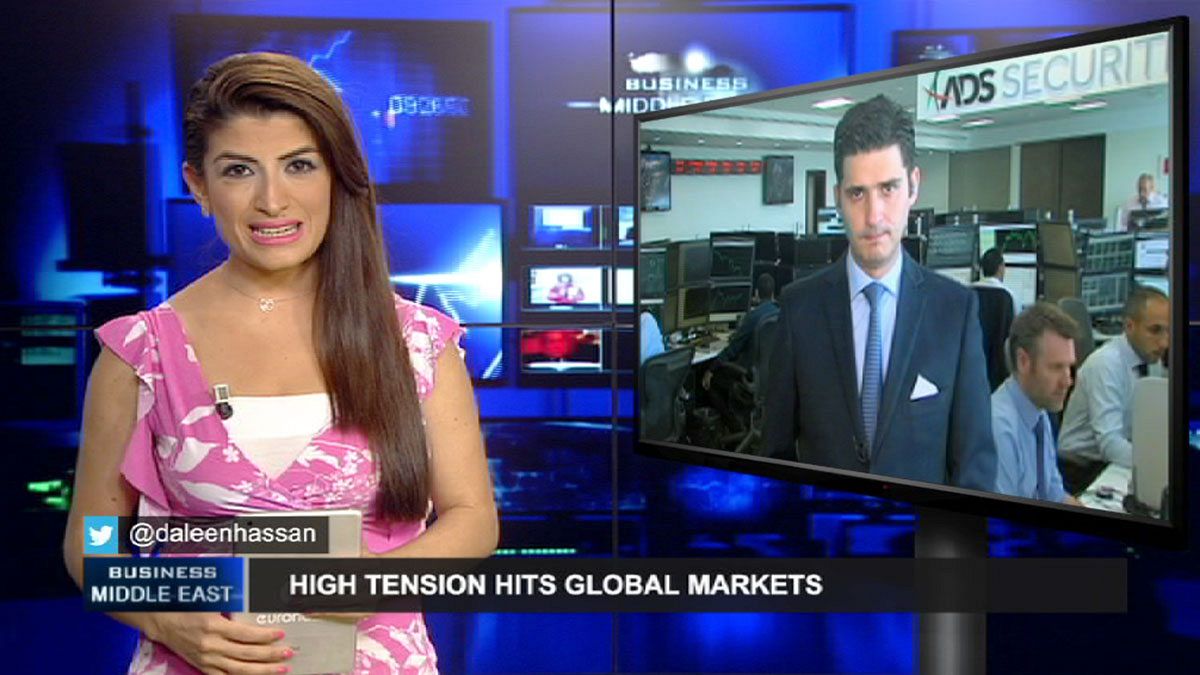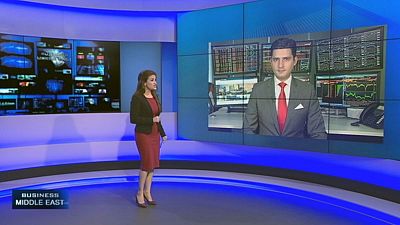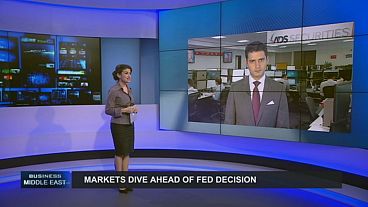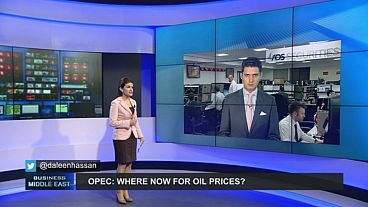In this edition of Business Middle East, we analyse the turbulence engulfing global markets. Signs of an economic slowdown in China are stacking up
In this edition of Business Middle East, we analyse the turbulence engulfing global markets.
Signs of an economic slowdown in China are stacking up. Fears that growth is weakening in the world’s second largest economy are hammering commodities and stocks.
Oil prices last week fell to their lowest level in six years. An oversupply contributed to the drop.
WTI was down to 40.4 dollars a barrel, while Brent crude came in at a price of 45.4 dollars a barrel.

Stock markets in Europe and the US have been suffering losses. Wall Street markets had their worst week in years.
The Middle East has not been shielded from the turbulence either. Saudi stocks fell to their lowest level in seven months, losing 14.2 percent.
Its outlook had been lowered from stable to negative by the Fitch credit rating agency.
Amid all of this, gold prices have shown signs of recovery – making hikes on Thursday and Friday of just over three percent.
Nour Eldeen Al Hammoury, chief market strategist at ADS Securities Abu Dhabi, gave his take on the developments.
Daleen Hassan, euronews
“The past week was eventful, with many markets hit, oil prices suffering. What do you make of these developments?”
Nour Eldeen Al Hammoury
“Oil is a supply and demand commodity. At the moment supplies are high and the market is looking at demand from China. It feels that this will decrease, so the price of oil is falling.
“But the market fundamentals still remain the same. Oil is still the hydro-carbon of choice. There is no replacement for oil in the short term, so the price, especially as the summer period closes, will start to correct.
“We have to remember that China has led the global economic recovery since the financial crisis. It still has seven percent GDP. Therefore, the current slowing down is just part of an economic cycle. It’s the next step China needs to take before its continued growth.”
Daleen Hassan, euronews
“Gold regained its sparkle, we saw a rise in prices at the end of last week. Could this trend continue, for metals in general?”
Nour Eldeen Al Hammoury
“We have seen some strength in gold, but investors have not been turning to it in the way they used to.
“We have seen more traders looking to hedge their exposure, using currencies and other asset classes. For example, the euro has been acting as a safe haven in the past few days, side by side with the Japanese Yen and the Swiss Franc.
“Investors see more trading value in these assets rather than sitting on gold.”
Emerging market currencies feel pinch
Fading expectations for an imminent US interest rate hike have taken their toll on emerging market currencies.
Pressure has intensified amid the concerns over growth in China, as well as in America.
Beijing devalued the yuan earlier this month by pushing it official guidance rate down two percent.
The central bank said there was no reason for the currency to fall further.
Kazakhstan’s tenge plunged some 25 percent after authorities abandoned its peg and let it float – another sign of the “currency wars” spreading across emerging markets.
The State Bank of Vietnam also devalued the dong by one percent against the dollar.
The Turkish lira hit a new historic low in its value against the dollar. This as political uncertainty and conflict focused in the country’s southeast undermined investor sentiment.
Daleen Hassan, euronews
“What do you think will happen to the currency market, specifically in the Middle East?”
Nour Eldeen Al Hammoury
“Investors may be looking at the headlines, which are dominated by the weakness of emerging market equities, but the underlying factor is that we’re still in the middle of an international currency war.
“This is leading to high volatility across various asset classes.
“Emerging currencies may continue to weaken further in the coming weeks, and central banks will be forced to act. However, this will need to be coordinated or it will be ineffective.
“Volatility brings opportunities. In the Middle East, we have seen a notable demand in various asset classes, including currencies and commodities.”



